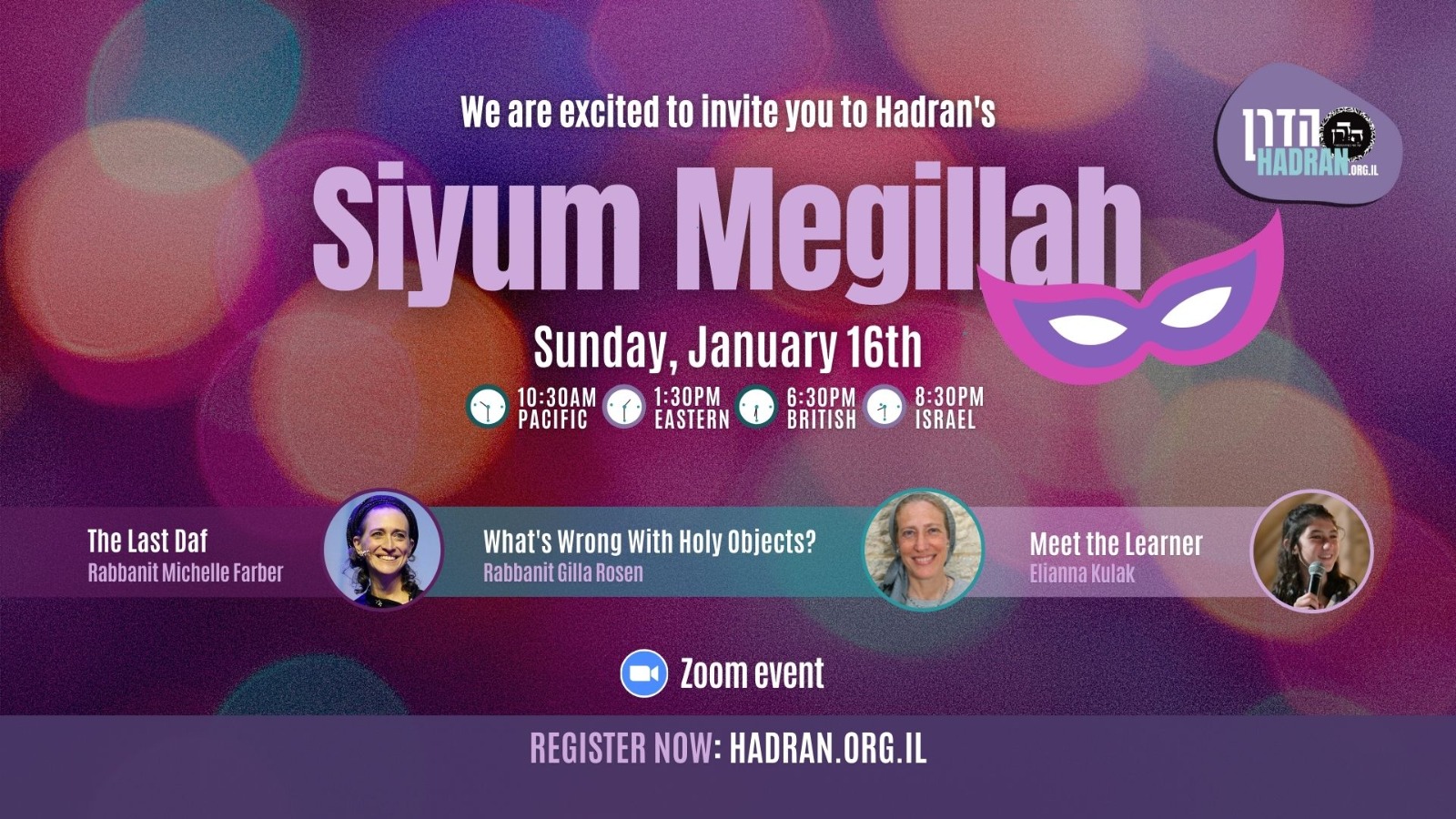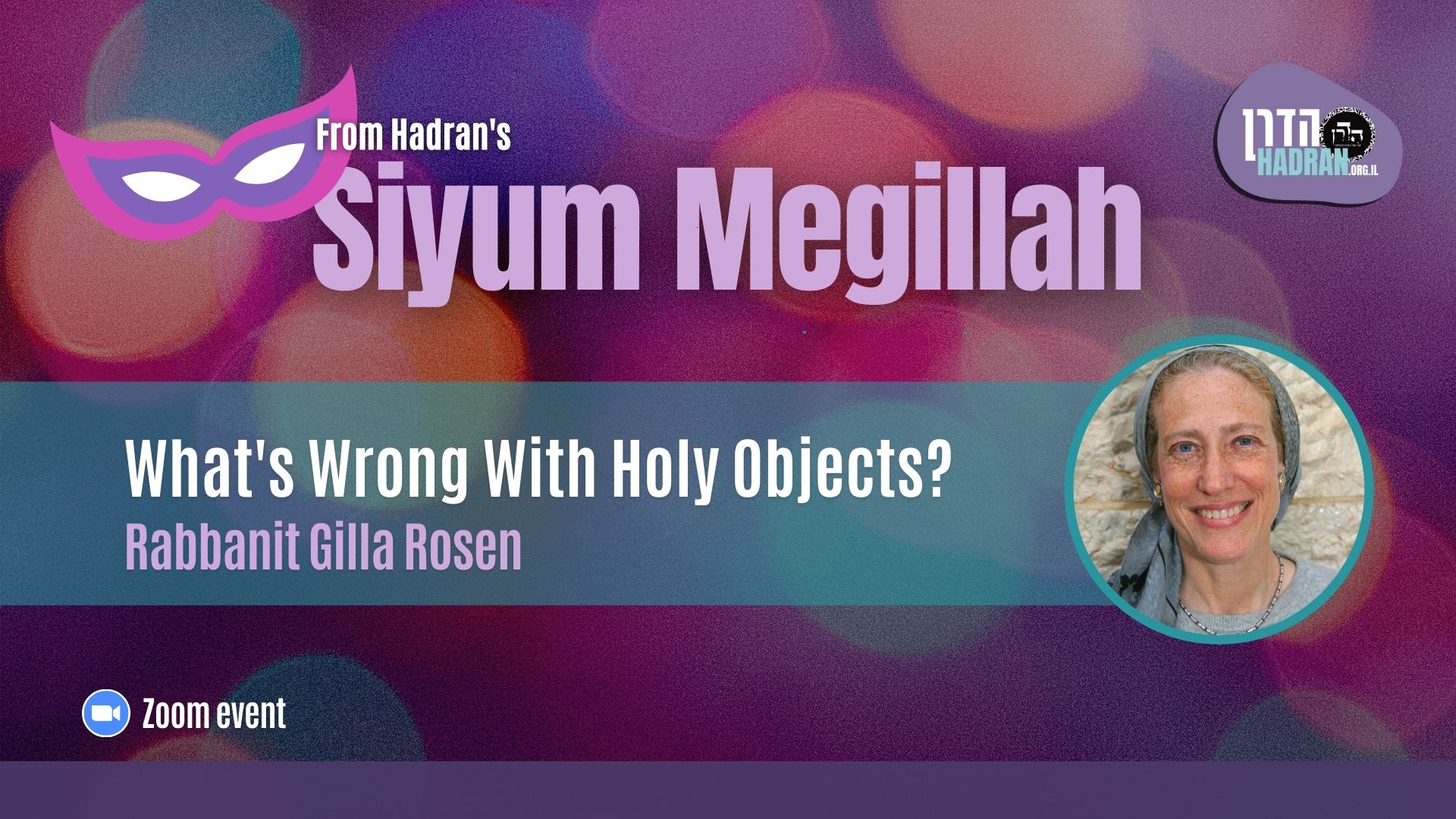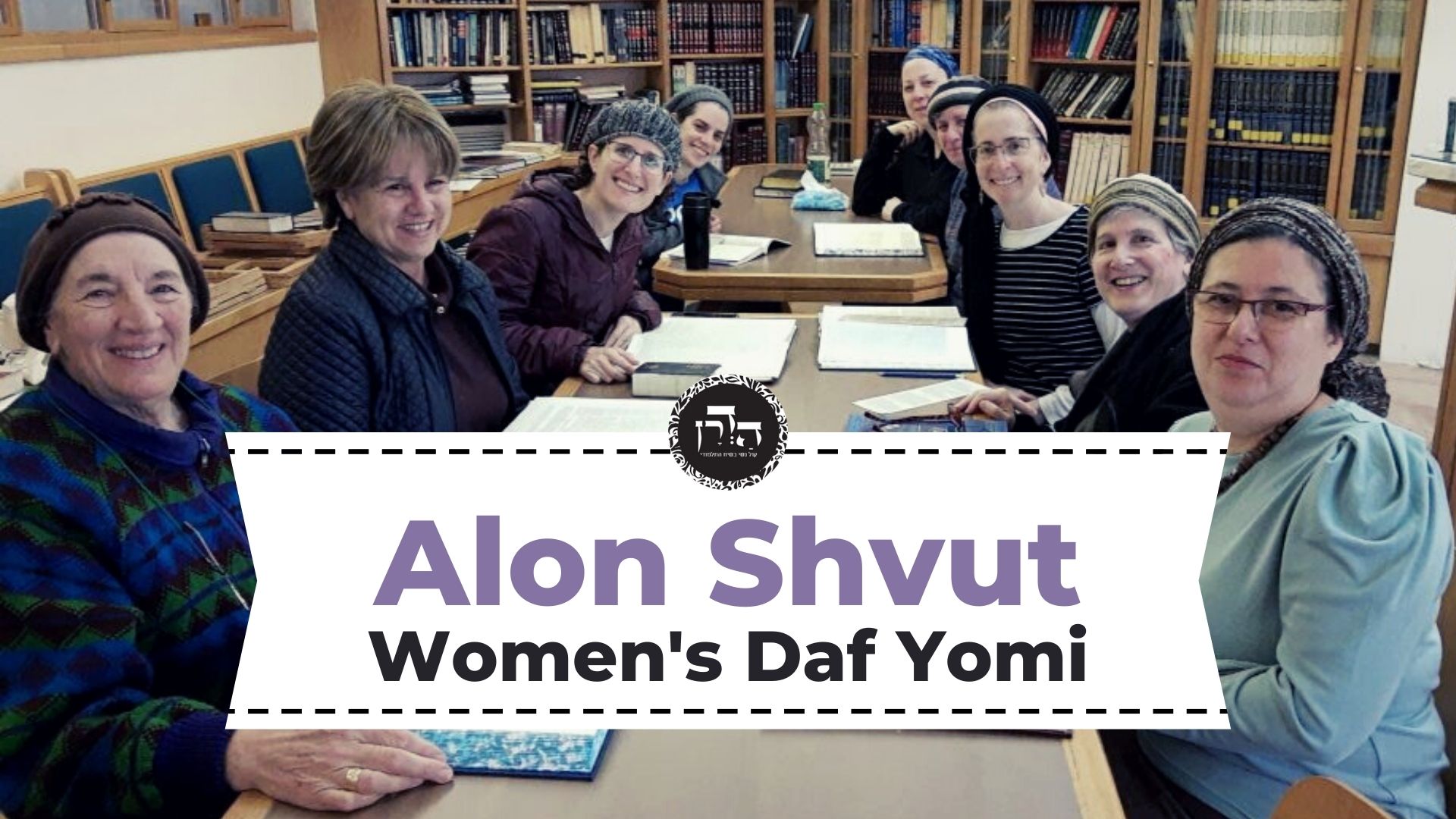Megillah 32
מִשּׁוּם דְּאָפְכִי לְהוּ.
The Gemara answers: Because there are those who reversed the names in the baraita and attributed the position of Rabbi Yehuda to Rabbi Meir, and vice versa. Therefore, in order to avoid any lack of clarity, Rabbi Zeira stated the halakha explicitly.
תָּנוּ רַבָּנַן: פּוֹתֵחַ וְרוֹאֶה, גּוֹלֵל וּמְבָרֵךְ, וְחוֹזֵר וּפוֹתֵחַ וְקוֹרֵא. דִּבְרֵי רַבִּי מֵאִיר. רַבִּי יְהוּדָה אוֹמֵר: פּוֹתֵחַ וְרוֹאֶה וּמְבָרֵךְ וְקוֹרֵא.
The Sages taught in a baraita: When a person reads from the Torah, he should open the scroll and see the place from where he will read, furl it so that it is closed, and recite the blessing, and then he should again open the scroll, and read. This is the statement of Rabbi Meir. Rabbi Yehuda said: He should open the scroll, and see the place from where he will read, and, without closing it again, he should recite the blessing, and read.
מַאי טַעְמָא דְּרַבִּי מֵאִיר? כִּדְעוּלָּא. דְּאָמַר עוּלָּא: מִפְּנֵי מָה אָמְרוּ הַקּוֹרֵא בַּתּוֹרָה לֹא יְסַיֵּיעַ לַמְתוּרְגְּמָן — כְּדֵי שֶׁלֹּא יֹאמְרוּ תַּרְגּוּם כָּתוּב בַּתּוֹרָה. הָכָא נָמֵי: כְּדֵי שֶׁלֹּא יֹאמְרוּ בְּרָכוֹת כְּתוּבִין בַּתּוֹרָה.
The Gemara asks: What is the reason for Rabbi Meir’s opinion that the blessing is not recited over an open scroll? The Gemara answers: His reasoning is in accordance with the statement of Ulla, as Ulla said: For what reason did the Sages say that one who reads from the Torah should not assist the translator, but rather the translation should be exclusively said by the translator? In order that people should not say that the translation is written in the Torah. Here too, the scroll should be closed when reciting the blessings, in order that people should not say that the blessings are written in the Torah.
וְרַבִּי יְהוּדָה: תַּרְגּוּם — אִיכָּא לְמִיטְעֵי, בְּרָכוֹת — לֵיכָּא לְמִיטְעֵי.
And Rabbi Yehuda is not concerned about this, as he claims that with regard to the translation, there is the possibility of people erring in this way, but with regard to the blessings, there is no concern about people erring. People will realize the blessings are not actually part of the Torah’s text because they are recited by each person who reads.
אָמַר רַבִּי זֵירָא אָמַר רַב מַתְנָה: הֲלָכָה, פּוֹתֵחַ וְרוֹאֶה וּמְבָרֵךְ וְקוֹרֵא. וְלֵימָא: הֲלָכָה כְּרַבִּי יְהוּדָה! מִשּׁוּם דְּאָפְכִי לְהוּ.
Rabbi Zeira said that Rav Mattana said: The halakha is that he should open the scroll, see the place from which he will read, and, without closing it again, he should recite the blessing and read. The Gemara asks: If so, let him simply say: The halakha is in accordance with the opinion of Rabbi Yehuda. Why did he have to explicitly state the whole halakha? The Gemara answers: Because there are those who reversed the names in the baraita and attributed the position of Rabbi Yehuda to Rabbi Meir and vice versa. In order to avoid any lack of clarity, Rabbi Zeira stated the halakha explicitly.
אָמַר רַבִּי זֵירָא אָמַר רַב מַתְנָה: הַלּוּחוֹת וְהַבִּימוֹת — אֵין בָּהֶן מִשּׁוּם קְדוּשָּׁה.
Rabbi Zeira said that Rav Mattana said: The boards, i.e., the empty margins of a Torah scroll, and the platforms from which the Torah is read do not have any sanctity.
אָמַר רַבִּי שְׁפַטְיָה אָמַר רַבִּי יוֹחָנָן: הַגּוֹלֵל סֵפֶר תּוֹרָה — צָרִיךְ שֶׁיַּעֲמִידֶנּוּ עַל הַתֶּפֶר.
§ Rabbi Shefatya said that Rabbi Yoḥanan said: When one furls a Torah scroll, he needs to position it so that it closes on the seam between two sheets of parchment. Once closed, the seam should be between the two rolls of the scroll, so that if it is mishandled or overly tightened, it will come apart along the seam and not be torn across the writing.
וְאָמַר רַבִּי שְׁפַטְיָה אָמַר רַבִּי יוֹחָנָן: הַגּוֹלֵל סֵפֶר תּוֹרָה — גּוֹלְלוֹ מִבַּחוּץ, וְאֵין גּוֹלְלוֹ מִבִּפְנִים.
And Rabbi Shefatya said that Rabbi Yoḥanan said: When one rolls a Torah scroll from one section to another, he should roll it from the outside, i.e., he should position the scroll so the two rollers are parallel to him and then roll the scroll by rotating the roller farthest away from him by rotating it toward himself, and he should not roll it from the inside, by rotating the roller nearest to him away from himself. If one does this and loses control, the scroll could roll away from him onto the floor.
וּכְשֶׁהוּא מְהַדְּקוֹ — מְהַדְּקוֹ מִבִּפְנִים, וְאֵינוֹ מְהַדְּקוֹ מִבַּחוּץ.
And when one tightens the scroll, after he has found the new section, he should tighten it from the inside, by rotating the roller nearest to him, and not from the outside, by rotating the roller furthest away from him, in order not to extend his arms over the text of the Torah and obscure the view of the community, for it is a mitzva for them to be able to see the text.
וְאָמַר רַבִּי שְׁפַטְיָה אָמַר רַבִּי יוֹחָנָן: עֲשָׂרָה שֶׁקָּרְאוּ בַּתּוֹרָה, הַגָּדוֹל שֶׁבָּהֶם גּוֹלֵל סֵפֶר תּוֹרָה. הַגּוֹלְלוֹ נוֹטֵל שְׂכַר כּוּלָּן, דְּאָמַר רַבִּי יְהוֹשֻׁעַ בֶּן לֵוִי: עֲשָׂרָה שֶׁקָּרְאוּ בַּתּוֹרָה, הַגּוֹלֵל סֵפֶר תּוֹרָה קִיבֵּל שְׂכַר כּוּלָּן. שְׂכַר כּוּלָּן סָלְקָא דַּעְתָּךְ? אֶלָּא אֵימָא: קִיבֵּל שָׂכָר כְּנֶגֶד כּוּלָּן.
And Rabbi Shefatya said that Rabbi Yoḥanan said: If ten people read from the Torah, the greatest among them should furl the Torah scroll, for this is the most distinguished honor. And the one who furls it takes the reward of all of them, as Rabbi Yehoshua ben Levi said: If ten people read from the Torah, the one who furls it receives the reward of all of them. The Gemara asks: Can it enter your mind to say that he actually receives the reward of all of them? Why should all the others forfeit their reward? Rather, say instead: He receives a reward equivalent to that of all of them.
וְאָמַר רַבִּי שְׁפַטְיָה אָמַר רַבִּי יוֹחָנָן: מִנַּיִן שֶׁמִּשְׁתַּמְּשִׁין בְּבַת קוֹל, שֶׁנֶּאֱמַר: ״וְאׇזְנֶיךָ תִּשְׁמַעְנָה דָבָר מֵאַחֲרֶיךָ לֵאמֹר״. וְהָנֵי מִילֵּי, דְּשָׁמַע קָל גַּבְרָא בְּמָתָא, וְקָל אִיתְּתָא בְּדַבְרָא. וְהוּא דְּאָמַר: ״הֵין הֵין״ וְהוּא דְּאָמַר: ״לָאו לָאו״.
And Rabbi Shefatya said that Rabbi Yoḥanan said: If one was deliberating about whether to do a certain action, and a Divine Voice indicated what he should do, from where is it derived that one may make use of a Divine Voice and rely upon it? As it is stated: “And your ears shall hear a word behind you saying: This is the way, walk in it” (Isaiah 30:21). The Gemara comments: This applies only when one heard a male voice in the city, which is unusual, for men are usually found in the fields, or when one heard a female voice in the fields, for women are generally not found there. Since the voice is unusual, one need not doubt it and may rely upon it. And that applies when the voice repeated its message and said: Yes, yes. And that also applies when the voice said: No, no.
וְאָמַר רַבִּי שְׁפַטְיָה אָמַר רַבִּי יוֹחָנָן: כׇּל הַקּוֹרֵא בְּלֹא נְעִימָה וְשׁוֹנֶה בְּלֹא זִמְרָה, עָלָיו הַכָּתוּב אוֹמֵר: ״וְגַם אֲנִי נָתַתִּי לָהֶם חוּקִּים לֹא טוֹבִים וְגוֹ׳״.
And Rabbi Shefatya said that Rabbi Yoḥanan said: Concerning anyone who reads from the Torah without a melody or studies the Mishna without a song, the verse states: “So too I gave them statutes that were not good, and judgments whereby they should not live” (Ezekiel 20:25), as one who studies Torah through song demonstrates that he is fond of his learning. Furthermore, the tune helps him remember what he has learned.
מַתְקֵיף לַהּ אַבָּיֵי: מִשּׁוּם דְּלָא יָדַע לְבַסּוֹמֵי קָלָא — ״מִשְׁפָּטִים לֹא יִחְיוּ בָּהֶם״ קָרֵית בֵּיהּ?! אֶלָּא כִּדְרַב מְשַׁרְשְׁיָא, דְּאָמַר: שְׁנֵי תַּלְמִידֵי חֲכָמִים הַיּוֹשְׁבִים בְּעִיר אַחַת וְאֵין נוֹחִין זֶה אֶת זֶה בַּהֲלָכָה — עֲלֵיהֶם הַכָּתוּב אוֹמֵר: ״וְגַם אֲנִי נָתַתִּי לָהֶם חוּקִּים לֹא טוֹבִים וּמִשְׁפָּטִים לֹא יִחְיוּ בָּהֶם״.
Abaye strongly objects to this: Just because one does not know how to make his voice pleasant, you read concerning him: “And judgments whereby they should not live”? Rather, the verse should be understood in accordance with the statement of Rav Mesharshiyya, who said: Concerning two Torah scholars who dwell in the same city and are not pleasant to one other in matters of halakha, and they quarrel and stir up controversy, the verse states: “So too I gave them statutes that were not good, and judgments whereby they should not live.”
אָמַר רַבִּי פַּרְנָךְ אָמַר רַבִּי יוֹחָנָן: כׇּל הָאוֹחֵז סֵפֶר תּוֹרָה עָרוֹם, נִקְבָּר עָרוֹם. עָרוֹם סָלְקָא דַּעְתָּךְ? אֶלָּא אֵימָא: נִקְבָּר עָרוֹם בְּלֹא מִצְוֹת.
Rabbi Parnakh said that Rabbi Yoḥanan said: Anyone who holds onto an uncovered Torah scroll, i.e., holds the parchment directly without anything intervening, will be punished by being buried uncovered. The Gemara asks: Can it enter your mind to say that he will actually be buried uncovered? Why should he be buried in such a disgraceful manner? Rather, say that he will be buried metaphorically uncovered, i.e., without the merit of having performed mitzvot.
בְּלֹא מִצְוֹת סָלְקָא דַּעְתָּךְ?! אֶלָּא אָמַר אַבָּיֵי: נִקְבָּר עָרוֹם בְּלֹא אוֹתָהּ מִצְוָה.
The Gemara again asks: Can it enter your mind to say that he will be buried without the merit of having performed mitzvot? Why should he forfeit the merit of all the mitzvot that he performed during his lifetime? Rather, Abaye said: He will be buried metaphorically uncovered, i.e., without the merit of that mitzva. He forfeits the reward of the mitzva he performed while holding directly onto the parchment.
אָמַר רַבִּי יַנַּאי בְּרֵיהּ דְּרַבִּי יַנַּאי סָבָא מִשְּׁמֵיהּ דְּרַבִּי יַנַּאי רַבָּה: מוּטָב תִּיגָּלֵל הַמִּטְפַּחַת וְאַל יִגָּלֵל סֵפֶר תּוֹרָה.
Rabbi Yannai, son of Rabbi Yannai the Elder, said in the name of Rabbi Yannai the Great: It is proper that the cloth cover of a Torah scroll be rolled around the scroll, while holding the scroll stationary, and one should not roll the Torah scroll itself in the cloth in order to cover it.
״וַיְדַבֵּר מֹשֶׁה אֶת מוֹעֲדֵי ה׳ אֶל בְּנֵי יִשְׂרָאֵל״, מִצְוָתָן שֶׁיִּהְיוּ קוֹרִין אוֹתָן כׇּל אֶחָד וְאֶחָד בִּזְמַנּוֹ. תָּנוּ רַבָּנַן: מֹשֶׁה תִּיקֵּן לָהֶם לְיִשְׂרָאֵל שֶׁיְּהוּ שׁוֹאֲלִין וְדוֹרְשִׁין בְּעִנְיָנוֹ שֶׁל יוֹם. הִלְכוֹת פֶּסַח — בַּפֶּסַח, הִלְכוֹת עֲצֶרֶת — בָּעֲצֶרֶת, הִלְכוֹת חַג — בֶּחָג.
§ The mishna states: The verse “And Moses declared to the children of Israel the appointed seasons of the Lord” (Leviticus 23:44) indicates that part of the mitzva of the Festivals is that they should read the portion relating to them, each one in its appointed time. The Sages taught in a baraita: Moses enacted for the Jewish people that they should make halakhic inquiries and expound upon the matter of the day. They should occupy themselves with the halakhot of Passover on Passover, with the halakhot of Shavuot on Shavuot, and with the halakhot of Sukkot on Sukkot.
הֲדַרַן עֲלָךְ בְּנֵי הָעִיר וּסְלִיקָא לַהּ מַסֶּכֶת מְגִילָּה

























